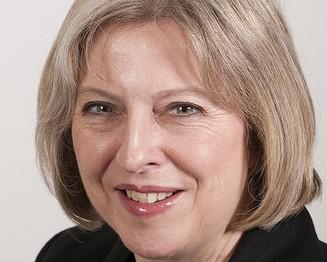
Home Secretary, Theresa May. Photo credit: Home Office
The background
Are you happy with people knowing which websites you visit? Well, you’d better be. Police and intelligence services will be allowed to access details of people’s internet use, following new government plans as set out in the Communications Bill, which will see web activity stored for a year. Councils won’t be allowed access to the data. The police won’t be able to see what you’re doing, but they’ll know who you’re contacting, and when. The government will pay for the storage of such data.
Theresa May, the Home Secretary, says that the police need this data to fight against crime, and to protect the public. The police agree. Others are not so happy.
These laws are necessary
Bernard Hogan-Howe, an important policeman, said in The Times that this law was very important. Legislation, as it stands, is out of date; all that police will be able to see is “contact, not content.” He said it was a “matter of life and death,” providing “crucial evidence” in a lot of serious crimes. He understood “concerns about privacy,” but suggested that the proposed laws weren’t that intrusive. There would be “strict controls on access.” It’s all about bringing things “up to date” so that the police can carry on catching criminals.
These laws are intrusive and wrong
Conservative MP David Davis was not happy. He said that one ought to get a warrant if one wanted to get such data; proper criminals will avoid this legislation. Nick Pickles, the director of Big Brother Watch, said that disallowing councils access to this information is a “desperate attempt to buy off critics.” The legislation is complex already; all this is doing is making it more complex. “It is a naked attempt to avoid scrutiny and deliberately hide from the public details of the most intrusive surveillance regime of any democratic government.” Quoted on Huffington Post.
These laws are unprecedented
Nick Pickles wrote a longer article on Conservative Home. Apparently the polie can already read our emails, tap our phones, plant hidden cameras and snoop on use – without even asking a judge. This level of surveillance is “unprecedented.” Nobody else does it. And what about people who need to be exempt, like MPs, diplomats and the security services? This legislation is “an illiberal, intrusive boondoggle that will do little to improve national security and do everything to turn us into a nation of suspects.”
Come on, everyone – we need them, properly
Meanwhile, Theresa May (for it is she) said what she thought in The Sun. She gave the example of the Asian sex gangs in Rochdale, which was busted by using communications data. “Who knows how many of these vile criminals might have gone free without this crucial policing tool.” She played the paedophile card, too, suggesting that many go unpunished and will continue to do so without this legislation. She said that unless you were a criminal, you had nothing to worry about. Nobody will be able to read what you’re writing – people who criticize the legislation are just being silly. Indeed, “without changing the law the only freedom we would protect is that of criminals, terrorists and paedophiles — and that is something I am not prepared to let happen.”

